Frame Up Restored Road Runner 426 HEMI 4 Speed A34 4.10
- Price:
- Location: Charlotte, North Carolina, United States
- Condition: Used
- Make: Plymouth
- Model: Road Runner
- Type: Other
- Doors: 2
- Year: 1969
- Mileage: 55,087
- Color: Blue
- Engine size: 426 HEMI V8
- Transmission: Manual
- Interior color: Black
- Vehicle Title: Clear
1969 Plymouth Road Runner Description
Making a car look like an evil track monster is a fairly simple thing. Strip it of unnecessary bits, add some nice wide wheels and lower it until it looks ready to roll up asphalt with the front end. Sure, there are exceptions but, for the most part, those three things will at least get you on the right path. Back in the late '60s, Plymouth decided to roll out their own track monster so they did what anyone would do. They stripped it, added a monster motor, decorated it with cartoon characters and gave it a goofy horn. Sure, maybe those last two don't sound so tough on paper, but we guarantee one full throttle run in this awesome '69 Road Runner will instill a lifelong respect for that cartoon bird and his signature beep. Fresh out of a frame up restoration, this B-body features the A34 Super Track Pack, N96 Fresh Air Package, a mighty 426 Hemi and a Hurst-handled A833 four-speed manual transmission. If you're in the market for one of the muscle car era's most memorable players, this killer blue Road Runner is a great addition to any garage.
To start with, here' s the breakdown of the VIN:
R: Road Runner
M: Medium Price Class
23: Two-Door Hardtop
J: 425hp/426cid Hemi
9: 1969 Model Year
233349: Sequence Number
And the original options:
A34: Super Track Pak
B51: Power Brakes
J25: 3-Speed Wipers
M21: Drip Rail Moldings
N96: Fresh Air Package
R11: Music Master AM Radio
V21: Performance Hood Treatment
V6W: Longitudinal White Stripe
26: 26-inch Radiator
Plymouth designers took the basic idea of stripped-down racer and translated into one of the most sturdy looking designs of the muscle car era. Comprised largely of straight lines and angles, the Road Runner doesn't look muscular like most of its competitors it looks indestructible. This B-body looks especially tough in its coat of B7 Jamaica Blue paint with longitudinal white stripes accenting the body lines. The performance hood features wide satin black stripes topped off by functional orange vents that draw cool air into duct work on the underside of the hood. Fresh out of an extensive restoration, the paint work is first rate and displays a level of depth that factory sprayed cars simply can't compete with. The color itself is impressive with tons of metallic flake that disappears in low lighting but comes alive in direct sunlight. Shot over impressively straight panels, the car makes a great first impression. Panel fitment is equally good with steady even gaps all around.
Chrome is heavy in a physical and visual sense. To keep the weight down, Plymouth designers kept their use of shiny bits to a minimum. Looking at the car head on, a single strip of stainless wraps around four Philips headlights and a simply square grille that keeps with the cars hard lines. Below, a show quality chrome bumper houses turn signals and a recess for the license plate. The side profile remains largely free of distractions with only front and rear marker lights, chrome door handles and Road Runner badges. Under the angled roofline, clean glass surrounds the interior, framed by dent-free stainless trim pieces that provide a nice contrast against the dark blue paint. Out back, two square taillights are angled inward, framing the lower portion of the decklid. Another chrome bumper, two chrome exhaust tips, a discrete Hemi badge and one final Road Runner badge complete the look. Of course, it's impossible to talk about Road Runner details without covering the bird itself. The Chrysler Corporation spent roughly $50,000 borrowing the character from Warner Brothers and its presence can be found on both doors, the decklid and several other pieces we'll cover in the next few paragraphs.
From the name to the design, the Roadrunner was built with one intention eliminating stop light competition. While the base 383 was nothing to laugh at, it was the 426 Hemi that made the car a legend. The Elephant in this B-body wears a 2468330-2 casting number with a date of May of 1968. It's not the car's original Hemi but it certainly looks the part. As a factory N96 car, the centerpiece is a bright orange open element air cleaner complete with a "Coyote Duster" decal. Below, twin Carter AFB series four-barrel carburetors deliver atomized fuel down through a correct 2780544/2780543 intake manifold. Under the wrinkle finish valve covers, massive heads house the hemispherical combustion chambers that gave the Hemi its name while black Packard wires snake over top, towards the front-mounted distributor. At the front, only a fan and alternator borrow engine power while the 26-inch radiator pumps coolant through reproduction hoses. Period correct accent pieces include the correct wiper motor, legendary Road Runner horn, and a Mopar battery which features orange overspray on the negative cable, just like the factory did it. On top of looking authentic, the Hemi fires up with ease and sounds just as predatory as ever through factory cast iron manifolds and an OEM exhaust system.
Take a look underneath the pristine body and you'll find a clean undercarriage with lots of correct hardware and solid floorpans that wear just the right amount of Jamaica Blue overspray. In the center, an 18-spline A833 four-speed manual transmission transfers power down the driveshaft and out to the Dana 60 differential packed with 4.10 gears. Even in the era of 600hp factory cars, this one launches hard enough to put a smile on any gearhead's face. Despite the modern tendency to update suspension components, this Road Runner retains all its factory pieces for an authentic driving experience. Luxuries like power steering have no place on a street brute but you'll be glad to have the factory power brakes which clamp down on discs up front and drums in the back. They get a bad rap but the drums on this B-body are surprisingly effective at reining in that Hemi power when needed. At the corners, body-matched steel wheels wear dog dishes with Goodyear F70-15's protecting them from the pavement.
Between the Jamaica Blue doors, a fully restored H2X black vinyl interior awaits. While you may expect a stripped down muscle car to be uncomfortable, this Plymouth is just the opposite. The rebuilt bench seat is surprisingly accommodating and offers just enough support to make long trips a legitimate possibility. From the carpet to the headliner, all the soft pieces appear to be new and combine to form a showroom quality cabin. From the driver's seat, a straightforward gauge cluster keeps tabs on alternator output, fuel level, speed, temperature and revs. Controls for features such as headlights and windshield wipers can be found just under the gauge cluster. A three-spoke steering wheel with a Road Runner themed horn button connects the driver to the front end through a fixed steering column while a Hurst shifter with a wooden shift knob keeps the A833 within reach. In the center of the console, an original Music Master AM radio pulls in signal from its spot just below the climate controls. To the far right, another cartoon Road Runner occupies a blank space in front of the front passenger. Open the decklid and you'll find a fully restored trunk with a correct mat, spare tire and jack ready for any roadside emergencies.
Documentation includes two copies of the fender tag broken down by Mopar master Galen Govier. There is also an impressive stack of receipts from big-time shops such as Mancini Racing and Roger Gibson Auto Restoration. Even after a quick glance through the stack, you'll be glad someone else footed the bill on this build.
If you bought into the notion that cartoons are for kids, drop it and get behind the wheel of this '69 Plymouth Road Runner. With one of the greatest designs of the day backed by the single greatest engine of the time, this no-frills thriller encapsulates everything that was right about the muscle car era. If your ready to hit the road with Hemi power, dust off a place in your collection for this Road Runner!
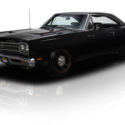 Restored Documented Numbers Matching Road Runner 426 Dual Quad HEMI V8 4 Speed
Restored Documented Numbers Matching Road Runner 426 Dual Quad HEMI V8 4 Speed
Mileage: 10,089
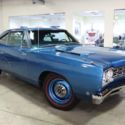 1968 HEMI ROAD RUNNER 4-SPEED, VERY RARE, FRESHLY RESTORED, BROADCAST SHEETS
1968 HEMI ROAD RUNNER 4-SPEED, VERY RARE, FRESHLY RESTORED, BROADCAST SHEETS
Mileage: 95,155
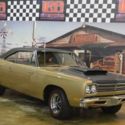 PLYMOUTH ROAD RUNNER 526 HEMI FRAME OFF RESTORATION BEAUTIFUL CAR
PLYMOUTH ROAD RUNNER 526 HEMI FRAME OFF RESTORATION BEAUTIFUL CAR
Mileage: 500
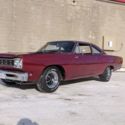 1968 Plymouth Road Runner Hemi 4 Speed True Hemi car
1968 Plymouth Road Runner Hemi 4 Speed True Hemi car
Mileage: 65,267
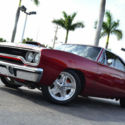 1970 Plymouth Road Runner Custom Restored 6.1L Gen 3 Hemi
1970 Plymouth Road Runner Custom Restored 6.1L Gen 3 Hemi
Mileage: 896
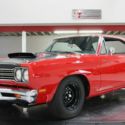 1969 Plymouth Road Runner 440 Six Pack Mopar Hemi A12 426 GTX Cuda Restored 69
1969 Plymouth Road Runner 440 Six Pack Mopar Hemi A12 426 GTX Cuda Restored 69
Mileage: 99804
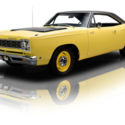 Rotisserie Restored Road Runner 472 Dual Quad HEMI V8 Torqueflite Moser PS
Rotisserie Restored Road Runner 472 Dual Quad HEMI V8 Torqueflite Moser PS
Mileage: 21,146
 Professionally Restored Road Runner 472 Dual Quad HEMI V8 Torqueflite Moser PS
Professionally Restored Road Runner 472 Dual Quad HEMI V8 Torqueflite Moser PS
Mileage: 21,146
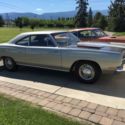 1969 Hemi Road Runner 4 speed
1969 Hemi Road Runner 4 speed
Mileage: 59,700
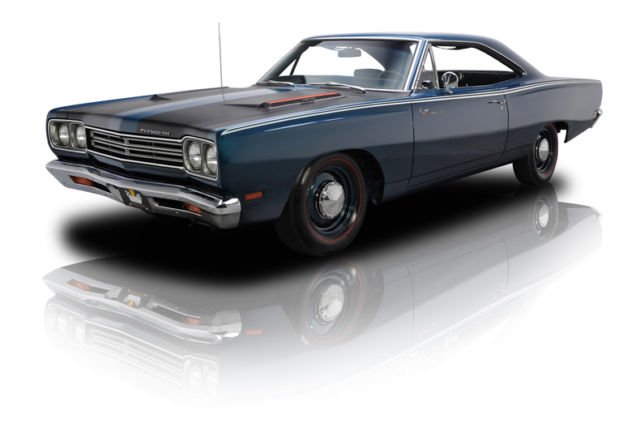
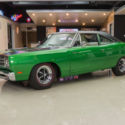 Fully Restored Road Runner! 426ci HEMI V8, #s Matching 727 Automatic, PS & More!
Fully Restored Road Runner! 426ci HEMI V8, #s Matching 727 Automatic, PS & More!